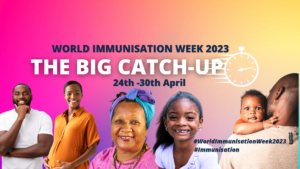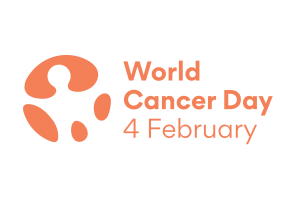What is Hepatitis?
Hepatitis is liver inflammation that can be caused by viruses (most common cause), toxins (e.g. alcohol, certain drugs), or autoimmune diseases. There are five main types of hepatitis viruses, labelled A, B, C, D, and E, with B and C being the most concerning due to their potential to cause chronic disease and severe liver damage.
How is viral hepatitis transmitted?
The transmission of hepatitis varies by type. Hepatitis A and E are typically spread through the ingestion of contaminated food or water. On the other hand, hepatitis B, C, and D are usually transmitted through parenteral contact with infected body fluids, such as through receipt of contaminated blood or blood products, invasive medical procedures using contaminated equipment, or through sexual contact. Hepatitis B can be transmitted from mother to baby at birth.
What are the symptoms?
The symptoms of hepatitis can range from mild to severe and may include jaundice, dark urine, extreme fatigue, nausea, vomiting, and abdominal pain. In some cases, individuals may experience limited or no symptoms during the acute phase of the infection. However, chronic infections, particularly those caused by hepatitis B and C viruses, can lead to serious complications like liver cirrhosis and liver cancer, emphasizing the importance of understanding the modes of transmission and implementing preventive measures.
How can hepatitis be prevented?
- Vaccination
Get vaccinated against hepatitis A and B. The hepatitis B vaccine also protects against hepatitis D.
- Hygiene and Food Safety
Practice good hygiene, wash hands frequently, drink clean water, and avoid undercooked food in areas with poor sanitation.
- Avoid sharing personal items
Don’t share needles, razors, or personal items that may carry blood
- Safe Sex Practices
Use condoms to reduce transmission risk of hepatitis B, C, and D.
- Limit Alcohol and Toxins
Avoid excessive alcohol consumption and unnecessary medications that may harm the liver.
- Safe medical practices:
Ensure sterile equipment is used for medical procedures.
As we mark World Hepatitis Day 2025, the Ghana College of Pharmacists stands in solidarity with the global health community to raise awareness and drive action against viral hepatitis, a condition that continues to claim lives silently in Ghana and across the world. This year’s theme, “Let’s Break It Down. Get the Facts. Take Action,” is a timely reminder of the urgent need to demystify hepatitis, equip people with accurate information, and take concrete steps toward its prevention and elimination.
Hepatitis B and C remain significant public health challenges worldwide, with a high prevalence rate and low awareness levels. In 2022, 304 million people were living with chronic hepatitis B and C, 2.2 million were newly infected, and 1.3 million lost their lives to the disease globally. That same year in Ghana, 15,000 lives were lost due to liver diseases linked to chronic hepatitis B and C. This staggering number translates to approximately 42 deaths daily, mostly among young adults battling liver failure and cancer.
Many people living with the disease are unaware of their infection status, increasing the risk of long-term complications such as liver cirrhosis and cancer. The Ghana College of Pharmacists recognises that eliminating hepatitis requires a collective approach built on informed action. Pharmacists are trusted healthcare professionals who help bring medical care closer to people in their communities, explaining health issues in ways that are easy to understand.
As a College, we have played and continue to play a critical role in the national response to hepatitis. Through the specialist training of pharmacists, we are strengthening the healthcare workforce with more specialist and consultant pharmacists who contribute significantly to the detection, management, and prevention of hepatitis across diverse healthcare settings.
Recognising the vital role of pharmacists in frontline healthcare as well as the gaps in routine immunisation, the Ghana College of Pharmacists has rolled out a vaccination training programme to equip pharmacists with the competencies needed to administer vaccines safely and effectively. This initiative ultimately aims to expand access to vaccination services, including hepatitis vaccines, especially in community pharmacies. Pharmacist vaccinators trained by the College have actively participated in national vaccination outreach programmes, contributing to increased coverage and improved access to essential vaccines, including those for hepatitis.
On this World Hepatitis Day, we call on the government, healthcare institutions, civil society, and the general public to intensify action against hepatitis. We urge individuals to get tested, vaccinated, and seek timely treatment if diagnosed. We also encourage expanded investment in hepatitis prevention programmes and equitable access to testing and medicines. Above all, we reaffirm our commitment to supporting the fight against hepatitis in Ghana through public education, specialised training, and policy support.
Let’s break it down. Let’s get the facts. Let’s take action and together eliminate hepatitis as a public health threat in Ghana!
Sources
- Hepatitis (2019) World Health Organization. Available at: https://www.who.int/news-room/questions-and-answers/item/hepatitis (Accessed: 10 July 2025).
- Ghana Health Service (2024) ‘Ghana Hepatitis Stakeholders’ Conference 2024’, in Hepatitis claimed 15,000 lives in 2022. Accra: GRAPHIC ONLINE. Available at: https://www.graphic.com.gh/news/general-news/ghana-news-hepatitis-claimed-15-000-lives-in-2022.html (Accessed: 10 July 2025).
















